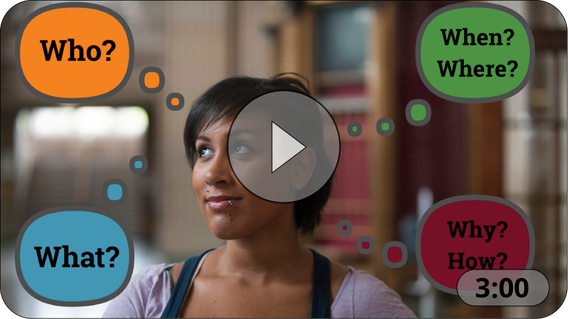Evaluating sources
Evaluating a source is important: it can save you time if you can set aside not-so-good stuff and focus on what’s going to work well for your assignment.
Watch: Evaluating sources

Should it stay or should it go?
Here are some techniques for choosing the most useful sources. The goal is to decide if the source relates to your topic or research question. Will it work well for your assignment? Will you be able to use it in your project?
Skim the library databases!
Read the abstract or summary, and glance at the introduction, headings, conclusion. At the end of the article, look at the references.
Ask the 5W questions (who, what, when, where, and why) about every source
- Who created or wrote the source?
- Can you trust the authors based on their credentials? Do a quick Google search to find out more on the author’s background.
- What kind of source is it?
- Can you tell which type of source you are looking at? Is it a scholarly article? A news article? Instructors generally prefer a variety of sources!
- When was it published?
- Depending on your topic you might want current sources, older sources, or a mix. For example, a topic of artificial intelligence might benefit from looking at recent sources
- Where was it published?
- You will need to determine if the source is from a reputable site or publisher. Google the journal, magazine, or newspaper title to find out more about it.
- Why was it created?
- To share new research, to entertain, to give an opinion?
What are “scholarly sources” exactly?
You may want (or be required) to find “scholarly” or “peer-reviewed" sources. What does this mean? Why is it important?
Watch: How peer-reviewed journals and where to find it all

